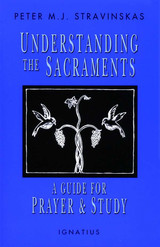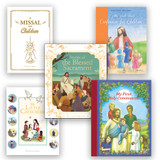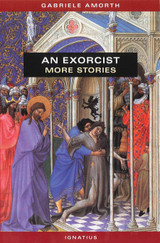Product Overview
The Second Vatican Council praised the Church's rich patrimony of sacred music and called for its continued liturgical use, with "pride of place" given to Gregorian chant. The Council Fathers also asked for the development of choirs capable of singing beautiful sacred music and the encouragement of the congregation to sing those parts of the Mass proper to them. What is involved in implementing these multiple reforms aimed at drawing the faithful more deeply into the sacrifice of the Mass?
This question is expertly addressed in these papers collected by the Congregation for Divine Worship. All of the various authors are noted for their scholarship in or experience with the aspirations for sacred music expressed in the Second Vatican Council's document on the liturgy, Sacrosanctum Conciilium. With depth and candor they discuss the successes, as well as the continued challenges, involved in implementing the liturgical reforms envisioned by the Council Fathers.
These papers are sure to make a significant contribution to the current conversation about the important place of music in the worship of God.
Editorial Reviews
This scholarship is worthy of the importance of its subject. I hope the pastoral common sense also on display in this book will put its erudition to work, achieving what Pope Pius X had hoped for with less than success, and rescuing sacred music from the Slough of Despond in which typical parish worship is now mired.
- Fr. George W. Rutler, Church of Our Saviour, New York City
"When man comes into contact with God, mere speech is not enough. Areas of his existence are awakened that spontaneously turn into song". This incisive observation by Cardinal Joseph Ratzinger in his book, The Spirit of the Liturgy, provides a key to unlock the mystery of why worship and praise of God are so essentially linked to music - and also to why it matters what we sing and how we sing it.
Musica Sacra is the proceedings of a "study day" held in December 2005, the second in a series the Congregation for Divine Worship sponsored to explore aspects of liturgy following the Second Vatican Council.
"It provides not only an important scholarly review of the history of liturgical music in the earliest centuries of the Church, but also presents concrete experiences of musicians currently at work in the Church to assure that the priceless musical treasure of our Christian heritage can continue to invigorate and deepen the Catholic faith of people today."
- Helen Hitchcock, Editor, Adoremus











